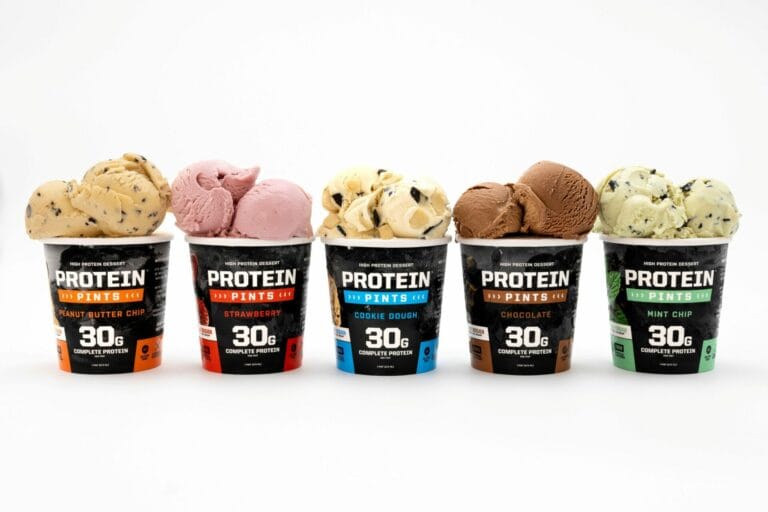Collagen Cuisine: Unlocking the Protein Code in Your Plate

Collagen is the body’s most abundant protein, playing an essential role in maintaining skin elasticity, joint health, and structural integrity of various tissues. With the health-conscious era, collagen has become a buzzword in dietary circles, leading to a surge in collagen-infused foods and supplements. But what is the science behind the hype? Let’s explore the incredible benefits of incorporating collagen-rich foods into your daily regimen.
Collagen is a hard, insoluble, and fibrous protein that makes up one-third of the protein in the human body. It provides structure to our skin, bones, tendons, fibrous cartilage, connective tissue, and teeth. As we age, our bodies produce less collagen, leading to wrinkles, sagging skin, and weaker joints. This natural decline has sparked interest in collagen as a nutritional supplement and a functional food ingredient.
The collagen revolution: collagen rich foods
Including collagen in your diet is more than just a trend; it’s a delicious way to promote overall health and wellness. The global collagen market was valued at USD 9.1 billion in 2022 and is anticipated to expand at a compound annual growth rate (CAGR) of 10.2% from 2023 to 2030, a clear testament to its rising popularity and recognition of its benefits. From berries to fish skin, collagen-rich foods offer a myriad of benefits, helping you maintain youthful skin, robust joints, and potentially even a healthier gut. So why not explore the collagen cuisine?
Berries
Berries might not contain collagen themselves, but they are rich in vitamin C, a nutrient essential for collagen synthesis. Regularly consuming vitamin C-rich foods like strawberries, raspberries, and blueberries can support your body’s ability to produce collagen.
Broccoli
Similar to berries, broccoli doesn’t contain collagen, but it is packed with vitamin C and other nutrients that support collagen production. It also contains a compound called sulforaphane which, according to some studies, may help slow the aging process by supporting collagen levels in the skin.
Aloe Vera Juice
Aloe vera juice is known for its healing and hydrating properties. Research has shown that it can increase collagen production and improve skin elasticity when consumed orally. Adding aloe vera juice to your diet could therefore help support your body’s collagen production.
Bone Broth
Bone broth, hailed as a healing elixir in traditional cuisines, is one of the best natural sources of collagen. It’s made by simmering animal bones and connective tissue. The slow cooking process allows the collagen in the bones to break down into gelatine, which is then easily absorbed by the body.
Beef bone broth is another collagen-rich food that can be easily incorporated into your diet. It’s made by simmering the bones and connective tissue of cows, yielding a flavourful broth packed with collagen and other beneficial nutrients like minerals and amino acids. This broth can be enjoyed on its own or used as a base for soups and stews, enhancing both taste and nutritional profile.
Pork bone broth is a staple in many Asian cuisines, known for its rich flavor and high collagen content. The broth is made by simmering pork bones for an extended period, releasing collagen, gelatine, and other beneficial nutrients into the broth.
Fish and Shellfish
While most people associate collagen with mammals, fish and shellfish are also excellent sources. The collagen in fish is primarily located in their skin and scales, which are often discarded in Western diets. However, incorporating more fish skin into meals or consuming marine collagen supplements can be beneficial.
Though small in size, sardines pack a punch when it comes to collagen. Like other oily fish, their skin and bones are edible and rich in collagen. They are also a great source of omega-3 fatty acids, which support skin health and may aid collagen production.
Chicken
Chicken is another great source of collagen, particularly the chicken’s feet and neck. These parts are rich in collagen and other nutrients, making them a valuable addition to broths and soups.
While boneless, skinless chicken breasts are often the go-to choice for health-conscious individuals, you might be missing out on a good source of collagen by discarding the skin. Chicken skin is rich in collagen and can be enjoyed in moderation as part of a balanced diet.
Egg whites contain large amounts of proline, one of the amino acids necessary for collagen production. Including egg whites in your diet can provide your body with the building blocks it needs to produce collagen.
Organ meats
Organ meats, also known as offal, are some of the most nutrient-dense foods available. Liver, heart, kidneys, and other organ meats from animals such as cows and chickens are high in many essential nutrients, including protein, and contain collagen as well.
Collagen-Infused Drinks
The trend of collagen-infused drinks is on the rise as a convenient way to increase collagen intake. These include ready-to-drink beverages like collagen water and collagen-infused coffee or tea. They can also be homemade smoothies or juices fortified with collagen powder.
Unlocking the Collagen Code: Benefits for Your Body
Anti-ageing from bone to skin health
One of the most touted benefits of collagen is its ability to promote vibrant, youthful skin. Studies have shown that consuming collagen can improve skin elasticity, hydration, and reduce wrinkles. A study found that women who took a supplement containing 2.5-5 grams of collagen for eight weeks saw a significant improvement in skin elasticity compared to those who didn’t.
Collagen’s benefits extend beyond skin-deep. It plays a crucial role in maintaining the health and resilience of our joints and bones. Studies have shown that collagen supplements can help reduce joint pain and boost the density of our bones. A 24-week study demonstrated that athletes who took a daily dose of 10g of collagen experienced a significant decrease in joint pain.
Gut health
Emerging research suggests that collagen could also benefit gut health, although more studies are needed to fully understand this connection. Some health practitioners suggest that it can help seal the gut lining and promote better digestion, potentially aiding conditions like leaky gut syndrome and acid reflux.
From bone broth to berries, the world of collagen-rich foods is diverse and delicious. The inclusion of these foods not only contributes to your collagen intake but also brings a range of other nutrients that support overall health and wellbeing. Embrace this banquet of benefits and let the power of collagen nourish your body from the inside out!
There you have it – a full course on collagen! From its essential role in our bodies to its dietary sources and impressive benefits, we hope this read inspires you to explore the world of collagen cuisine. Here’s to a healthier, more vibrant you!
Remember, always consult with a healthcare professional before making any major changes to your diet or supplement routine. This article is intended to educate and inspire, not replace professional medical advice.





